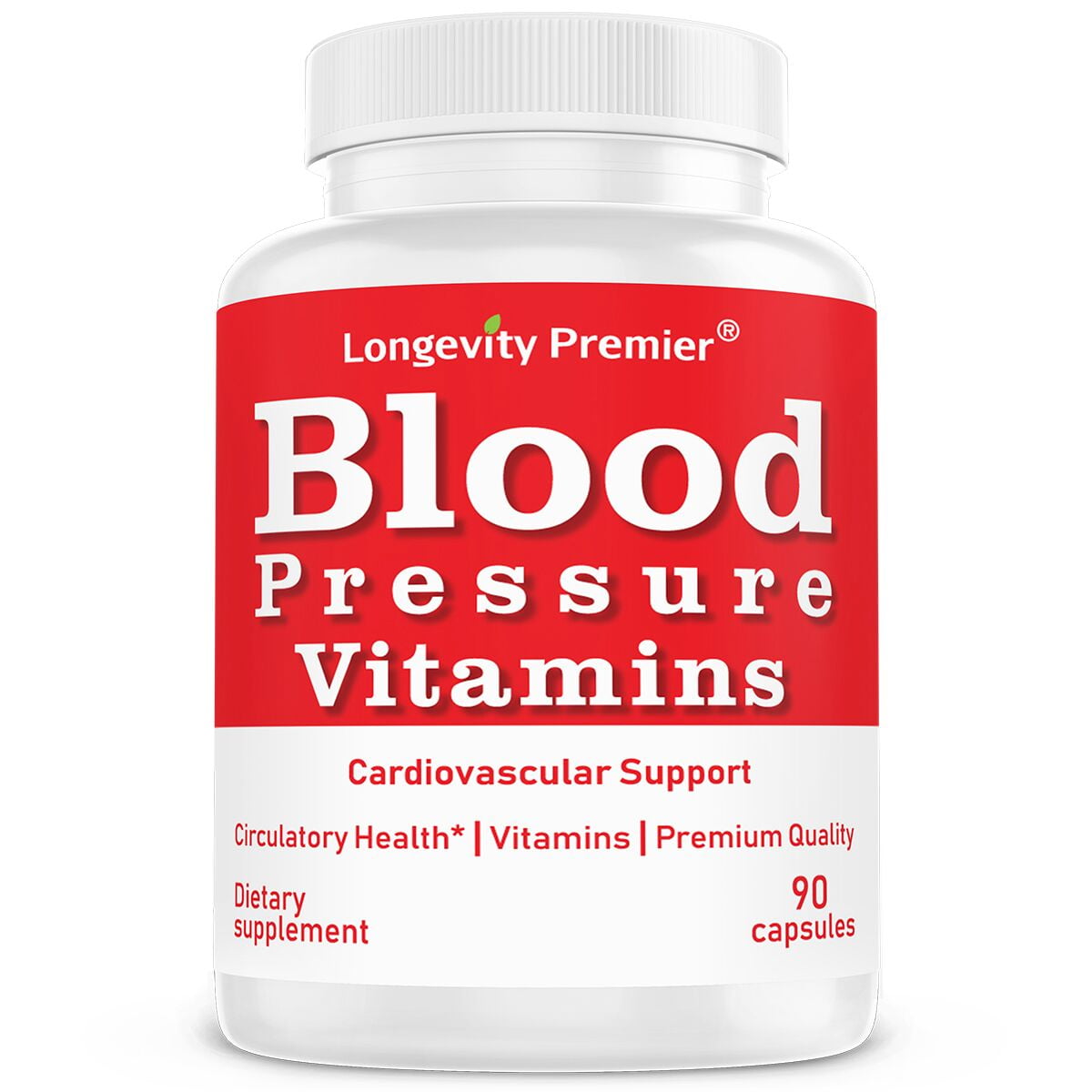Vitamin for Hypertension Health

Vitamin D
Vitamin D is an essential nutrient that is important for bone health and immune function. Recent studies have shown that it may also have a role in regulating blood pressure levels. Vitamin D helps improve the function of the endothelial cells, which are the cells that line the blood vessels. It also helps reduce inflammation and oxidative stress, which are both risk factors for hypertension. Studies have shown that people with low levels of vitamin D are more likely to have high blood pressure. Therefore, getting enough vitamin D through sun exposure, diet, or supplements may help manage hypertension.
Food sources of vitamin D:
- Fatty fish such as salmon, tuna, and mackerel
- Egg yolks
- Cheese
- Mushrooms
- Fortified foods such as milk, cereal, and orange juice
Recommended daily intake:
The recommended daily intake of vitamin D is 600-800 IU per day for adults. However, some people may need higher doses depending on their blood levels. It is best to consult with a healthcare professional to determine the appropriate dose for you.
Vitamin C
Vitamin C is a powerful antioxidant that helps protect the cells from damage caused by free radicals. It also helps improve the function of the endothelial cells and reduce inflammation, which are both important for managing hypertension. Studies have shown that people with higher levels of vitamin C in their blood have lower blood pressure levels. Therefore, increasing your intake of vitamin C through diet or supplements may help improve heart health and manage hypertension.
Food sources of vitamin C:
- Citrus fruits such as oranges, lemons, and grapefruits
- Kiwi
- Strawberries
- Tomatoes
- Bell peppers
Recommended daily intake:
The recommended daily intake of vitamin C is 75-90 mg per day for adults. However, some people may need higher doses depending on their health condition. It is best to consult with a healthcare professional to determine the appropriate dose for you.
Vitamin B6
Vitamin B6 is a water-soluble vitamin that is important for many functions in the body, including protein metabolism, neurotransmitter synthesis, and immune function. It also helps reduce inflammation and oxidative stress, which are both risk factors for hypertension. Studies have shown that people with higher levels of vitamin B6 in their blood have lower blood pressure levels. Therefore, increasing your intake of vitamin B6 through diet or supplements may help manage hypertension.
Food sources of vitamin B6:
- Poultry
- Fish
- Whole grains
- Legumes
- Nuts and seeds
Recommended daily intake:
The recommended daily intake of vitamin B6 is 1.3-1.7 mg per day for adults. However, some people may need higher doses depending on their health condition. It is best to consult with a healthcare professional to determine the appropriate dose for you.
Vitamin E
Vitamin E is a fat-soluble vitamin that is important for many functions in the body, including immune function, cell signaling, and antioxidant defense. It also helps improve the function of the endothelial cells and reduce inflammation, which are both important for managing hypertension. Studies have shown that people with higher levels of vitamin E in their blood have lower blood pressure levels. Therefore, increasing your intake of vitamin E through diet or supplements may help improve heart health and manage hypertension.
Food sources of vitamin E:
- Nuts and seeds
- Sunflower oil
- Almonds
- Spinach
- Sweet potato
Recommended daily intake:
The recommended daily intake of vitamin E is 15 mg per day for adults. However, some people may need higher doses depending on their health condition. It is best to consult with a healthcare professional to determine the appropriate dose for you.
FAQs
Q: Can vitamins alone help manage hypertension?
A: While vitamins can be beneficial for managing hypertension, they should not be used as a substitute for medication. It is important to consult with a healthcare professional and follow their recommendations for managing hypertension.
Q: Can taking too much vitamins be harmful?
A: Yes, taking high doses of certain vitamins can be harmful and may cause side effects. It is important to consult with a healthcare professional and follow their recommendations for vitamin intake.
Q: Can vitamin supplements interact with medication?
A: Yes, some vitamin supplements may interact with medication and cause adverse effects. It is important to consult with a healthcare professional and inform them of all the supplements and medication you are taking.
Q: Can I get enough vitamins from my diet?
A: Yes, it is possible to get enough vitamins from a healthy and balanced diet. However, some people may require supplements to meet their daily vitamin needs. It is best to consult with a healthcare professional to determine the appropriate dose for you.
Conclusion
Vitamins are essential nutrients that play an important role in managing hypertension and improving heart health. Vitamin D, C, B6, and E are particularly beneficial for reducing blood pressure levels and protecting the heart from damage. While getting enough vitamins through diet is ideal, supplements may be necessary for some people. It is important to consult with a healthcare professional and follow their recommendations for managing hypertension and vitamin intake.
